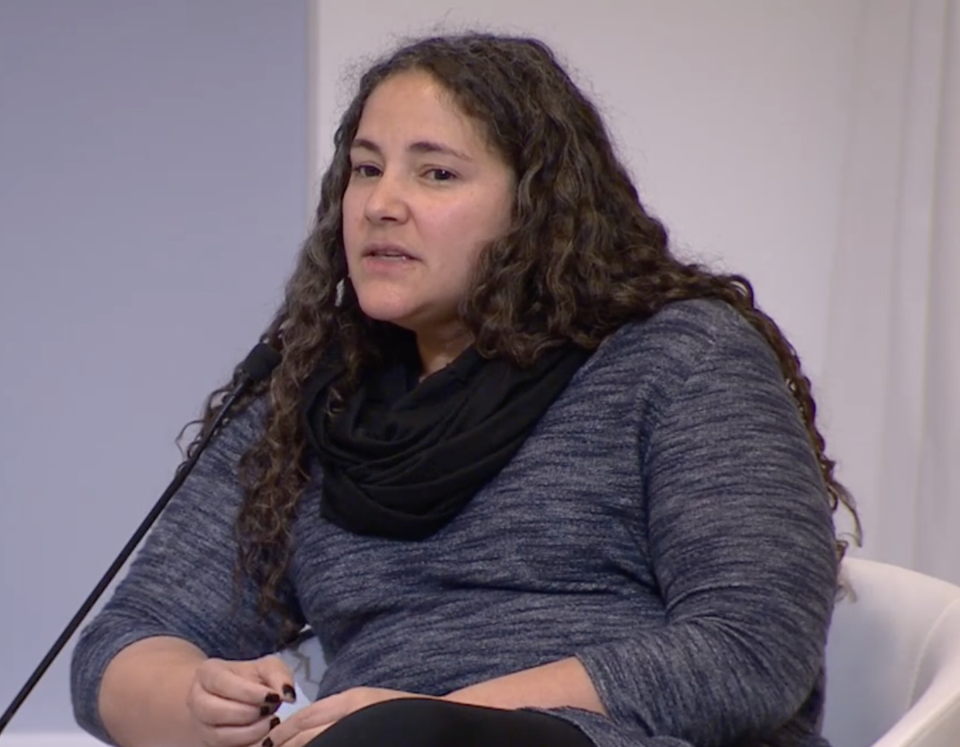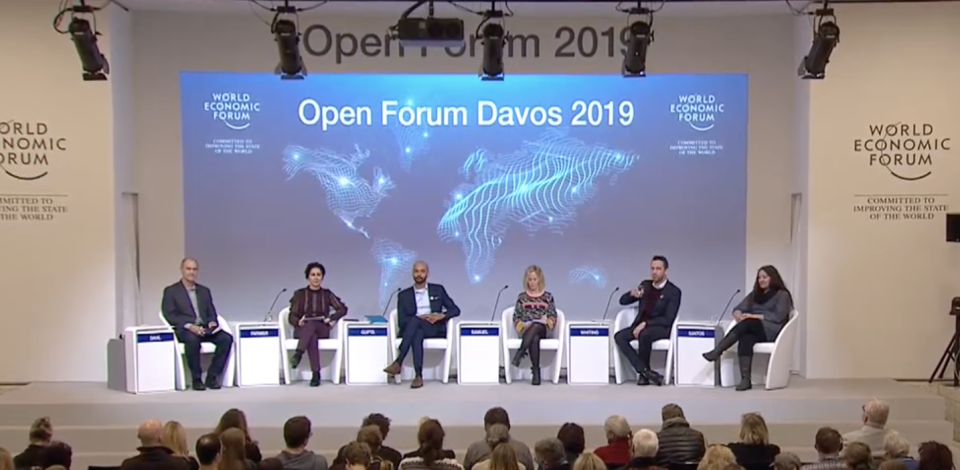Yale's famous 'happiness' professor dismantled the world's loneliness epidemic in one talk

Loneliness doesn’t just have an impact on someone’s health — it has huge repercussions on the economy.
In a panel session called Loneliness: An Epidemic? at the World Economic Forum (WEF) in Davos, Switzerland, a number of experts discussed what communities can do to address the causes and impacts of loneliness, as well as how businesses and governments need to take the issue seriously.
Laurie Santos, professor of psychology at Yale University, is the architect of the university’s most popular course — “Psychology and the Good Life” (PSYC 157). In one semester it enrolled 1,200 students, but now an expanded version of the class is available for free on Coursera.
As part of the course, Santos says she tries to teach students how to lead a happier and more satisfying life. This was especially pertinent after a 2013 report by the Yale College Council revealed that over half of undergraduates sought mental health care from the university during their time there.
She is also the head of one of Yale’s residential colleges — Silliman College. It is there where “I saw the mental health crisis, up close and personal,” she said. “I saw loneliness in the trenches in a spot where students should be hanging out with each other in the dining hall.”
WEF found that 40% of under-25-year-old people reported that they feel lonely.
Santos said that the core of how loneliness develops is actually linked to going against what our minds tell us.

“All the things from the research suggests is that many of things we go after or motivated to do, our minds are lying to us about what will make us feel better. We just seek out the wrong kinds of stuff. This happens in the domain of social connection,” Santos said.
She used cited a famous study called Mistakenly Seeking Solitude that showed simple things, like seeing family or speaking to a stranger in a queue at the bank or on the train, has a positive impact on wellbeing. But because we don’t actively seek it out, as we wouldn’t think it would make us feel better, we are more predisposed to not making those connections and therefore isolating us more — leading to loneliness.
“We’re social animals but we sometimes forget that we just need to take action to talk to people and make more connections. So one of the things I see as a challenge is that even when we are feeling lonely, we don’t realise the right next steps is just to reach out and make those connections,” she said.

The cost of loneliness
Loneliness has been gaining prominence as an area that governments around the world are trying to address.
In Britain, for example, the government appointed a minister for loneliness, Tracey Crouch, last year. The UK’s Office for National Statistics (ONS) also released statistics in 2018 that showed that adults aged 16 to 24 years in England reported feeling lonely more often than those over 65. Women reported feeling lonely more frequently than men, according to the ONS. It also warned that loneliness is associated with poor life expectancy.
A UK government report in 2017 showed the impact of loneliness on physical and mental health, revealing that it was as harmful as smoking 15 cigarettes a day. A scientific study also argued that loneliness is a public health issue.
In terms of the economic impact, another study found that the total cost to UK employers from loneliness clocks in at £2.5bn annually, of which £2.1bn is borne by private sector employers. The London School of Economics also said in another study that for every £1 spent in preventing loneliness, there are £3 of savings because the “epidemic of loneliness” costs around £6,000 per person in health costs and local services pressures.
“Really simple interventions that leaders or organisations can say, can change how much a person can feel how they belong,” Santos said.
She used the example of a series of essays students write at Stanford University. At the start of every semester, the university asks students how they feel like they matter, their sense of belonging, and how they feel people care about them.
“Turns out, these essays can predict whether a student will feel like they belong there, months or even years later. So that’s why I think belonging can be so important because it’s important for the whole phenomena but that could also be a spot where we can make really fast in roads to make change,” Santos said. “The second is to find more ways to feel socially connected — finding connections with the people around us.”

 Yahoo Finance
Yahoo Finance 
